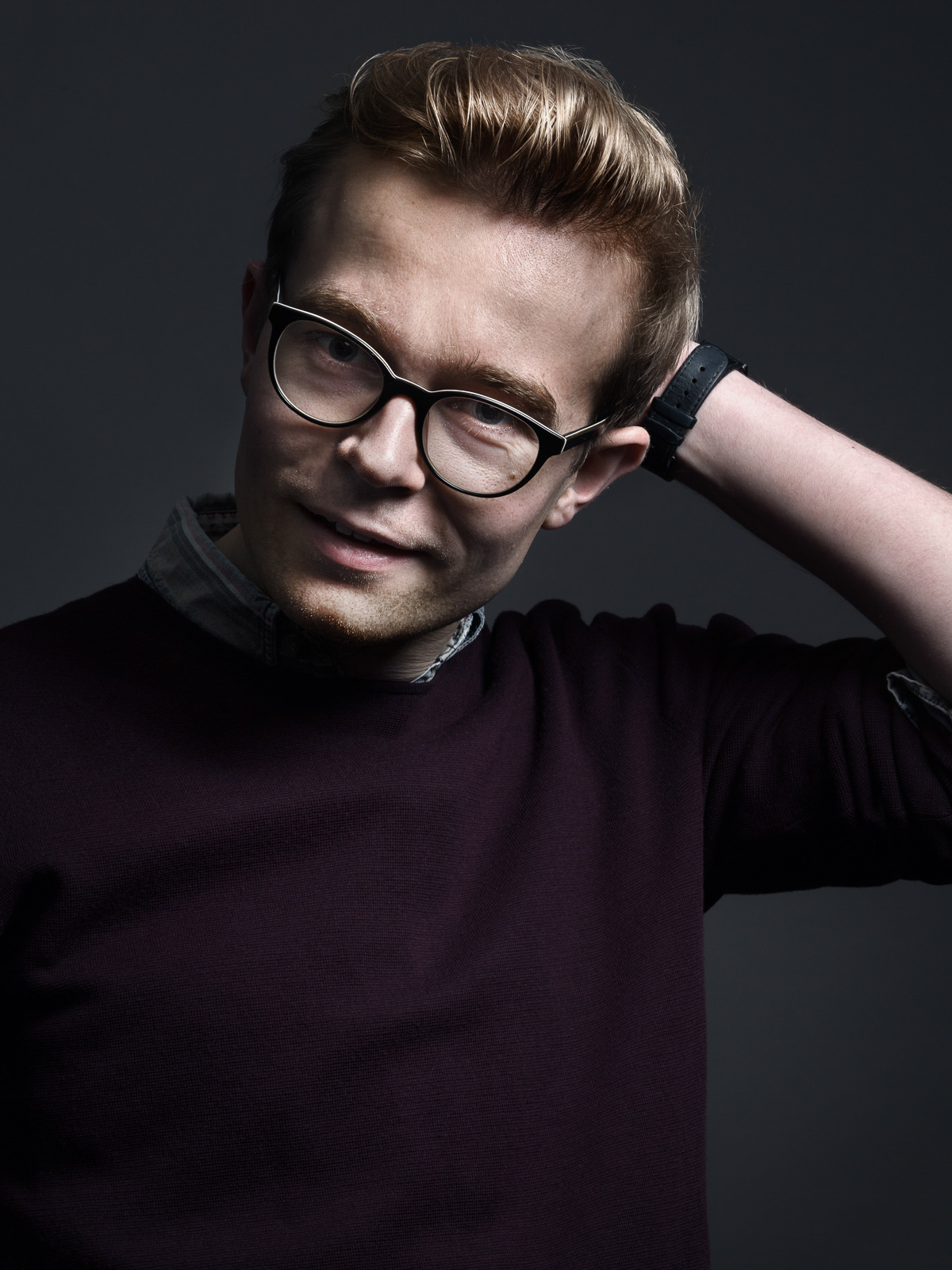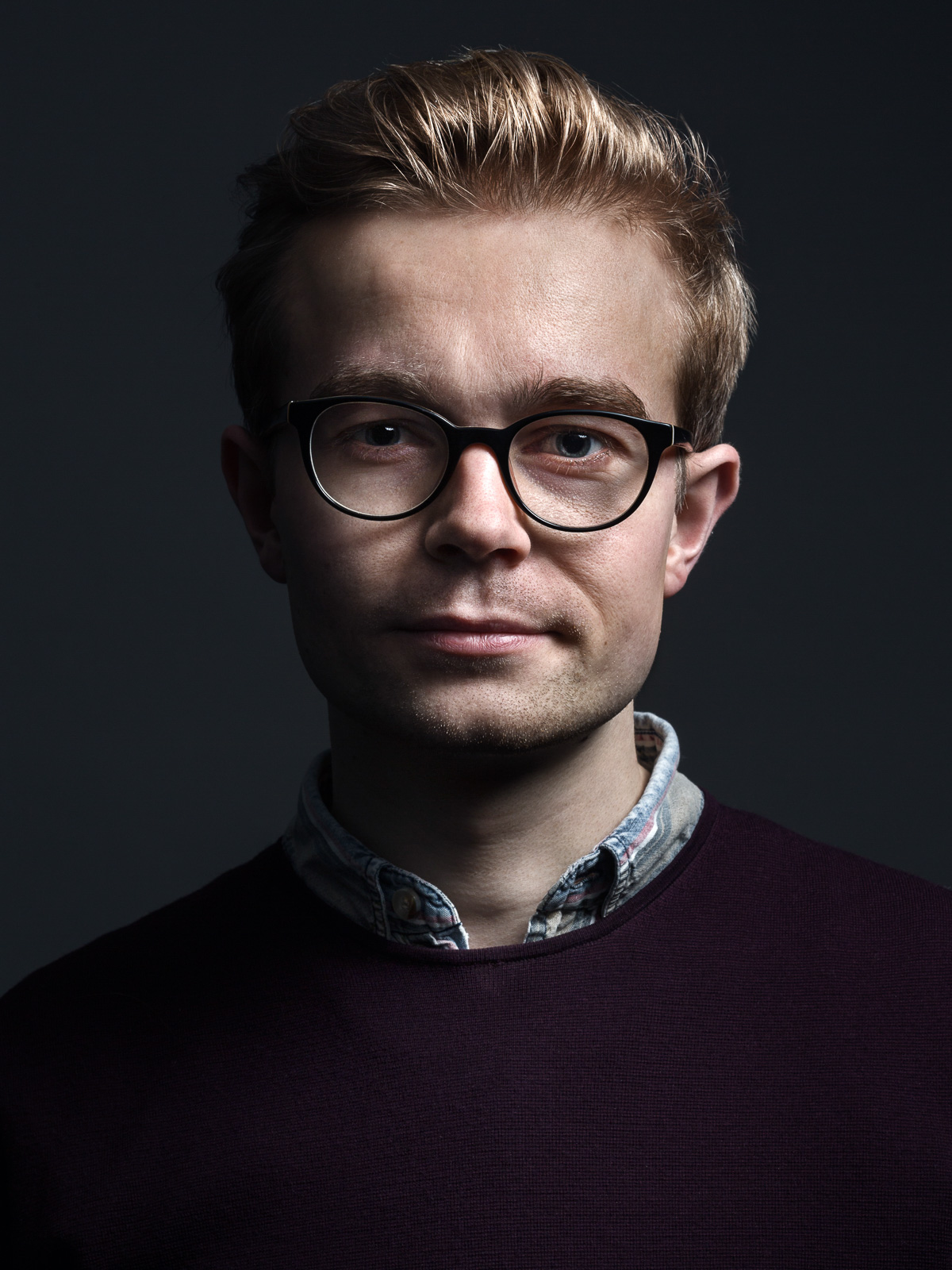Goal-orientated, but in doubt
The Student Council's new chair Emil Outzen was in his own words very goal-orientated when he chose to study marketing after graduating from business college. But he still ended up doubting his choice during his studies. Now he is studying economics and management and criticising the degree programme cap. As he says: "You’re just fooling yourself if you imagine that everyone can follow the straight and narrow path.”



Not many minutes of the interview have passed before the newly elected chair of the Student Council Emil Outzen brings up the degree programme cap. The act, which worsens student’s opportunities of taking a new study programme on the same of lower level as the one they already have, is the latest example of the "political follies" that have led the 24-year-old economics and management student to get involved in student politics.
"The degree programme resizing and the study progress reform really lit a fire in me. I experienced that heartfelt feeling of someone’s got to do something about this," he says and continues:
"But when the degree programme cap was adopted, that was one of those times where I've been angriest of all. Because it’s hopeless and unfair to treat people who actually try to plan their lives as best they can like that and deny them the opportunity to make a different choice."
In doubt
About Emil Outzen
- Twenty-four years old and raised in a village outside of Haderslev.
- Finished business college in 2011, moved to Aarhus to study in 2012 and in between managed to fit in a year working in an office juggling Excel figures for the pharmaceutical company PAREXEL in Berlin.
- Currently taking a Bachelor of Science in Economics after having taken a Bachelor of Marketing and Management Communication (before the degree programme cap was introduced).
- Played basketball for over a decade, but stopped after an injury and due to a lack of time.
- Has been active in the Communication Council and the Oecon Council, was voted onto the Student Council's executive committee a year ago.
- Read more about the Student Council (in Danish)
Five quick questions for Emil Outzen
1. The last time my blood pressure went through the roof was because: …It was definitely during the days when the degree programme cap was adopted, and also when the politicians who had adopted the proposal began to smuggle provisos in because they could subsequently see how problematic the bill was.
2. Very few people know that I: … Have an almost unhealthy fascination of mildly brutalist architecture. I really like places like the Panum Institute, the Børglum Hall of Residence and Vestervang (residential complex in Aarhus, ed). In fact, I've even got a book about the Aarhus architect company Friis and Moltke on my bedside table.
3. I can't imagine anything better than when I: … Have just read a good book or an article in my newspaper (I read the Danish weekly newspaper Weekendavisen and subscribe to the online Zetland, and right now I’m considering subscribing to The Economist again) where learn something new.
4. My favourite app is: My podcast app. It’s difficult to read on the way to and from the university, or when you are doing the washing-up, so it’s good to listen to podcasts. I listen to Danish news and current affairs podcasts and Freakonomics.
5. My favourite place at AU is: … Precisely 11 in the morning on Tuesday, Wednesday or Thursday, when I walk along the corridor with all the associations and get that cup of coffee that’s a little bit too strong to be good, but where the sense of community at economics and management outweighs it, because doors are always open and there is always someone to talk to.
Emil Outzen is one of the final students to avoid the degree programme cap. He managed to complete his Bachelor of Marketing and Management Communication and switch to studying economics and management before politicians adopted the degree programme cap in January.
"I began to doubt whether marketing was what I wanted to spend the rest of my life doing. My interests swung during my years at the university towards the more socio-economic aspect rather than the marketing aspect. I was still in doubt during the first six months at economics and management, because although I’d always liked maths, I wondered whether it had become too much. But now I’m really pleased that I changed degree programmes."
He thinks the whole idea of young people having a finished picture of what they want to do for the rest of their lives already while they’re in upper secondary school is mistaken.
"I think I was very goal-orientated when I chose marketing after business college, and I spent a lot of time during my year off considering my choice of education. But I still came to doubt my decision. I think there should be room for doubt at the university," he says and continues:
"The choices you make as a student will be very finite when you can’t make a different choice if you find you’ve chosen wrongly. You’re typically 18-19 when you choose an education, and you learn more during your time at the university. You’re just fooling yourself if you imagine that everyone can follow the straight and narrow path. That would make students practically the only people in society who can do that."
He acknowledges that politicians have relaxed the degree programme cap act, so it is now possible to take a new study programme on the same or lower level, six years after completing the initial degree programme. But that does not change the fact that he sees the law as a reflection of an unfortunate change in society's view of education and knowledge.
"In society we’ve stopped looking at knowledge as something that is unconditionally good. Knowledge is only valued for the socio-economic outputs that it leads to," he says.
Student must stand together nationally
He admits that it can be difficult for individual student councils to bring arguments to bear on politicians who are avid reformers.
"So the national collaboration in the National Union of Students in Denmark and the collaboration with the student councils at the other Danish universities are therefore really important," he emphasises.
The local aspect is the core of the Student Council
But there is also plenty to get involved in locally at AU. He is also very preoccupied with the local aspect, because he sees the local anchoring by virtue of the degree programme councils as the core of the Student Council. He therefore thinks it is important that the degree programme councils can see themselves reflected in the work of the Student Council.
As examples of some of the cases that he and the rest of the student councils will address this year, he mentions AU's major study environment survey and a reorganising of the student newspaper Delfinen to a solely digital media.
"We must also have an internal evaluation in the Student Council of the way we stand for university elections. The degree programme councils are the ones who decide how this will be done in the future."
At the elections in November, an unexpectedly large vote for the Arts Council list led to only one of the Student Council's two candidates being voted onto the university board. Subsequently, the whole Arts Council list withdrew, so that both lead candidates from the Student Council got a seat on the board. That in turn led to criticism of the Student Council from the chairman of the election committee, professor of law Jørgen Albæk Jensen, Frit Forum and the conservative student list KS.
READ MORE: Election drama at AU
Quite Jutlandish
Talking about his approach as chair of the student, Emil Outzen says:
"I'm quite Jutlandish, so it will be with a certain degree of pragmatism, and I like to always have both feet on the ground. But when it comes to things like the degree programme cap and SU reform, then I’m going to put my foot down and say enough is enough.”

